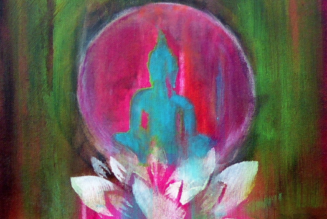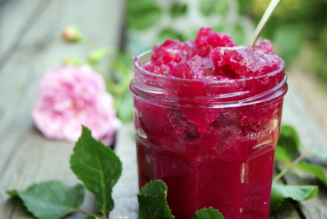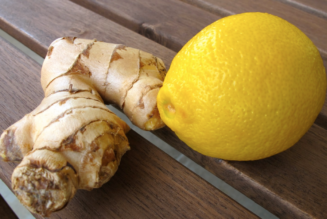5 Health Tips For Winter Season
Winter is the season when the earth’s energy withdrawls back into herself as nature slows down with cold, damp, and heavy qualities. Because of these cold qualities – many people experience signs and symptoms of vata aggravation [anxiety, insomnia, etc] especially during the early part of winter season. Here are some simple ways to remain cozy and healthy during winter season while balancing vata dosha.
Vata Dosha – Flow & Motion
Vata dosha governs flow and motion in the mind and body — the movement of thoughts across our minds; memory; food moving through our digestive tract; elimination of wastes; the flow of our blood; and our breath. For the movement of all three doshas — Vata makes it happen; it’s the leader! Since the other doshas, Pitta and Kapha, cannot move without it, it is important to keep Vata in balance. When in balance, the qualities of our leader, Vata, are vivacious energy; ability to learn easily with a clear and alert mind; balanced digestion and elimination; good circulation and even body temperature; and the ability to fall asleep easily at bedtime. Vata-predominant people seem to always be busy. Need a task completed? Ask a multi-tasking Vata person to complete it — no problem! They will enthusiastically get your task done — along with the handful of other things they have in the fire as well.
A thin body build, an inability to gain weight easily, and the ability to learn very quickly come with Vata — coupled with the tendency to also forget quickly. We would think that with all of this movement, Vata would tend to be too warm. However, quite the opposite is common. Vatas can easily become cold — cold hands, cold feet, cold when everyone else in the room is not! And because of this, Vata typically loves heat. A warm sunny day, a warm shower, or just lots of layers of clothing do the trick to thaw the cold Vata. When imbalance starts, it is usually led by Vata dosha. When Vata goes out of balance, the other doshas may follow. Some signs of Vata out of balance: feeling cold at room or outside temperature; being forgetful or “spaced out;” lack of focus; occasional constipation; difficulty falling asleep; and occasional feelings of anxiousness or worry. Consider the consequences of pushing a Vata-imbalanced person to complete a task for you! They may forget details or lack the focus to complete the task, or they may be able to complete it but become stressed and fatigued in the process, impeding the overall success of the task. If you recognize Vata imbalance in another person, realize that pressuring them is likely to have an effect opposite of what you want.
Does this sound familiar to you?
Keep reading to learn a few great ways to keep Vata balanced.
1. Keep Calm
First and foremost, keep calm and regular in your routine. Vata thrives, and tends toward balance, when supported by a regular daily routine. So when possible, make a plan — start your ayurvedic routine the night before and wake up feeling refreshed, ready to take on anything that comes your way. At night, drink a cup of boiled milk and Organic Calming Vata Tea an hour before sleep. Diffuse Vata Aroma Oil, or one of our other essential oils (choose the one that smells best at the time of preparation) in your room at night, or in the office for a calm, consistent aroma to help you slow down. Be worry free with a combination of herbs that helps us step up to the challenges of modern life without stress or worry: Worry Free simultaneously calms the nervous system (soothing to Vata dosha) while supporting mental acuity. Try taking one an hour before bedtime.
2. Balance Digestion
The key to balancing Vata digestion is regularity — especially regular, daily elimination. Due to the sometimes-erratic movement of Vata, when digestion is imbalanced it can manifest as intestinal cramps, occasional diarrhea or constipation, or gas. The answer? Organic Digest Tone (Triphala Plus), the nightly detox for regulating digestion and elimination.
Eat Cooked Meals Regularly
Keeping in line with the routine that Vata craves, try eating meals at regular mealtimes each day. Always on the go? If we can avoid the tendency to eat a light lunch on the go, even on our busiest days, we can calm the flighty nature of Vata. Warm, nourishing, cooked foods (less raw foods) help us stay grounded. Try seasoning cooked veggies with Organic Vata Churna. Favor warm, oily, heavy foods and sweet, sour, and salty tastes. And reduce light, dry, cold foods and pungent, bitter and astringent tastes. Eat larger quantities of food, especially at lunch, but not more than can be digested easily.
3. Oil
Dry, rough skin can often accompany those leaning towards Vata tendencies. Daily abhyanga (yes, daily), ayurvedic massage with Organic Sesame Oil or Moisturizing Herbal Massage Oil, will work wonders to soothe dry skin and tame excess movement. Try abhyanga in the morning to start the day right! On those busy days, when there isn’t time for a full-body self massage, try “karnapura” — ear oleation abhyanga that calms Vata. Use a dab of Organic Sesame Oil on your little finger to gently lubricate your ear canals; reapply as needed throughout the day. If you live in a dry climate, Nasya can be very soothing for your nasal passages. Apply oil to your little finger and dab inside your nostrils, or use Organic Clear & Soothe Nasal Spray. Massage the inner nostrils and sniff a few times, then wipe away the excess oil. You will be surprised at the beneficial effect this has.
4. Yoga Asanas and Meditation
Yoga asanas, practiced properly, massage and loosen our joints and muscles, releasing nervous tension. This makes yoga asanas the ideal non-strenuous exercise for Vata. According to ayurveda, lightly putting our attention on the area of sensation while practicing each posture has a balancing effect, as the area of stretch is actually a marma point. Properly done, gentle asanas stimulate the marma points in our body, bringing balance. Our bodies and minds will find peace by favoring a gentle asana practice which balances both sides of the body. Just slow it down. Favor yoga asanas and yoga styles that encourage slow, methodical movement. If you lean towards Vata imbalance, consider letting go of the fast-paced, overly-stimulating asana practices, such as repetitive Sun Salutations, or any postures that place excessive strain on your body! Seated meditation — the ultimate yoga asana — calms our mind and brings our body back into balance, creating our sense of feeling grounded! Practicing Transcendental Meditation® twenty minutes twice a day offers a direct means to transcend and restore balance to both mind and body. If you have not learned Transcendental Meditation, then practice your technique of choice.
5. Stay Warm & Rest Well
Back to those cold hands and feet…
When the temperature outside drops or we are just having a day where we cannot seem to warm up — a soothing cup of sweet Organic Calming Vata Tea will settle a whirling mind and warm our bodies from the inside out. Enjoy warm temperatures when possible. And of course, pile on the layers to stay warm, if needed. All of that routine calls for rest, rest, and good rest. Do you ever lie down at night and find that the day’s to-do list or an overactive stream of thoughts just won’t let you fall asleep? To promote quality rest, start preparing a few hours before bedtime. Dim the lights around the house and then enjoy calming leisure activities such as reading, listening to relaxing music, or enjoying light-hearted conversation with your loved ones. Try Blissful Sleep, a natural sleep aid for falling asleep faster and enjoying blissful, refreshing sleep! Taking Worry Free one hour before bed can also help Vata-predominant individuals. Eating our dinner at least three hours before bed will make a big difference in calming our mind and allowing us to sleep soundly. Why? Our sleep can be disturbed by our body digesting a meal that we eat too late, or too much of, in the evening.
Promo Code: “healthyayurveda”
For 10% Discount On Your First Oder!!
Disclaimer:
By following these simple ayurvedic guidelines, we can keep Vata regulated, regardless of the season or circumstance, and in turn keep all of the doshas moving properly. The sole purpose of these articles is to provide information about the tradition of ayurveda. This information is not intended for use in the diagnosis, treatment, cure or prevention of any disease. If you have any serious acute or chronic health concern, please consult a trained health professional who can fully assess your needs and address them effectively. If you are seeking the medical advice of a trained ayurvedic expert, call or e-mail us for the number of a physician in your area. Check with your doctor before taking herbs or using essential oils when pregnant or nursing.


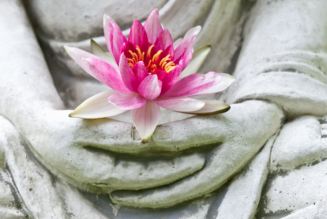
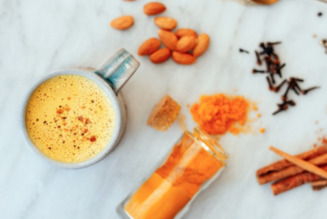
![Female Health: Amenorrhea [cessation of menses] – An Ayurvedic Perspective](https://healthyayurveda.com/wp-content/uploads/2015/07/1.-Amenorhea--327x219.png)
